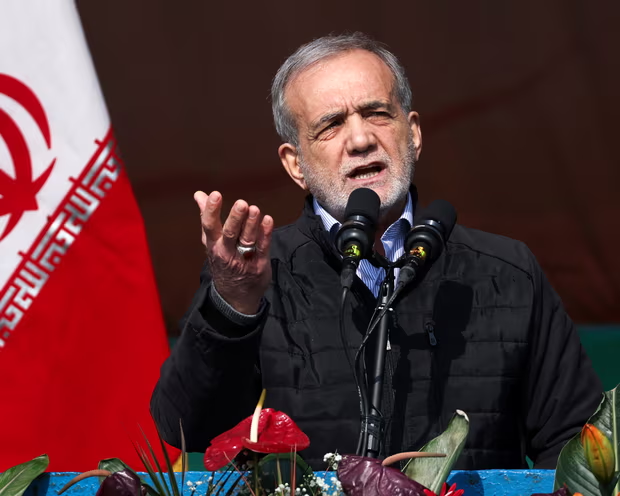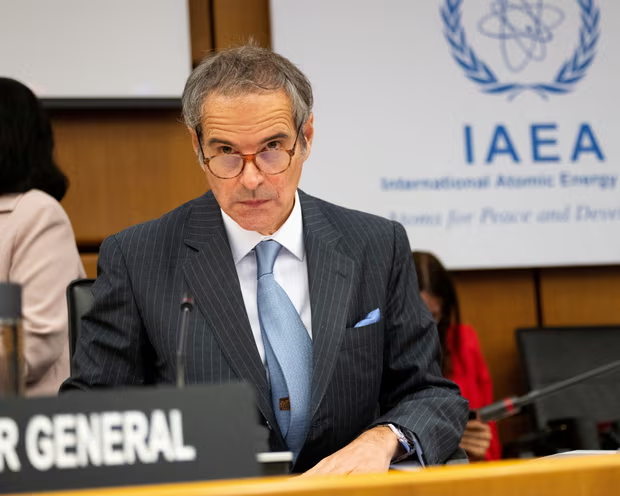Iran’s trust in the United Nations’ nuclear watchdog, the International Atomic Energy Agency (IAEA), is crumbling fast. President Masoud Pezeshkian recently called out the IAEA for failing to condemn attacks on Iran’s nuclear facilities by Israel and the U.S. Meanwhile, European nations like France, Germany, and the UK are standing firm behind IAEA Director General Rafael Grossi. This clash is sparking global concern, and at AMERICA NEWS WORLD, we’re diving into the heart of this heated issue to bring you the latest updates.
What’s Happening?
On June 30, 2025, Pezeshkian spoke with French President Emmanuel Macron. He expressed deep frustration with the IAEA. According to Iran, the agency hasn’t criticized Israel and the U.S. for strikes on its nuclear sites, which Iran says violate the UN charter and the Nuclear Non-Proliferation Treaty (NPT). These attacks, part of a 12-day air war, killed 935 people, including 38 children and 132 women, Iranian officials report.
Pezeshkian asked Macron a tough question: If Iran cooperates with the IAEA, what’s stopping more attacks? He also criticized the agency for using Israel, a non-NPT member, as a source for its reports. This has fueled Iran’s distrust, leading to a refusal to let IAEA inspectors assess damage to nuclear sites like Natanz, Fordow, and Esfahan.
European Nations Respond
On the other side, France, Germany, and the UK issued a joint statement on June 30, 2025. They condemned Iran’s threats against Grossi and urged full cooperation with the IAEA. “We call on Iran to ensure the safety of IAEA personnel,” the statement said. They stressed that Iran must meet its legal obligations under the NPT. This support for Grossi comes as Iran’s parliament voted to suspend cooperation with the IAEA, raising fears of further escalation.

Iran’s nuclear program has long been a global flashpoint. The country insists its nuclear work is for peaceful purposes, like energy production. However, the IAEA and Western nations worry about Iran’s uranium enrichment, which has reached levels close to weapons-grade. Before the attacks, Iran had over 400 kilograms of highly enriched uranium, enough for several nuclear bombs if further processed, according to IAEA reports.
also read:-US B-2 Bombers Strike Iran Nuclear Sites
also read:-WORLD HISTORY DAY
also read:RECITAL BLOG
The recent strikes by Israel and the U.S., starting June 13, 2025, targeted key nuclear sites. Natanz’s above-ground facility was destroyed, and Esfahan and Fordow faced significant damage. While no off-site radiation leaks have been reported, the IAEA warns of risks from uranium hexafluoride, a toxic gas that could cause harm if released. Iran’s refusal to allow inspections has left the world guessing about the true state of its nuclear program.
The conflict isn’t just about nuclear sites. It’s about trust, power, and global politics. Iran feels betrayed by what it calls Western double standards. For example, Pezeshkian pointed out that Israel, which reportedly has nuclear weapons but isn’t part of the NPT, faces no scrutiny. This grievance is driving Iran to consider leaving the NPT altogether, a move that could destabilize the Middle East further.
Meanwhile, diplomatic efforts are struggling. The U.S. has proposed talks through Oman, with ideas like allowing Iran to enrich uranium under strict conditions on Kish Island. But Iran’s deputy foreign minister, Majid Takht-Ravanchi, said no dates for talks have been set. The lack of progress worries experts, who fear a “massive conflict” if negotiations fail, as former U.S. President Donald Trump warned on June 13, 2025.
The IAEA’s Rafael Grossi is pushing for diplomacy. He’s offered to travel to Iran to restart inspections and ensure nuclear safety. However, Iran’s hardline stance, including threats against Grossi, makes this tough. Some Iranian media even suggested trying Grossi for alleged Mossad ties, a claim European nations dismiss as baseless.
For now, the world watches closely. The UN Security Council could step in if Iran doesn’t comply, possibly reimposing sanctions lifted under the 2015 nuclear deal. But with Iran hinting at leaving the NPT, the stakes are sky-high. As reported by The Guardian, Grossi estimates Iran could resume enriching uranium in months, keeping the nuclear threat alive.
Why It Matters
This crisis affects everyone. A nuclear-armed Iran could spark an arms race in the Middle East. It could also disrupt global energy markets, as Iran is a major oil producer. At AMERICA NEWS WORLD, we’re committed to keeping you informed with clear, honest reporting. Stay tuned for updates as this story unfolds.
